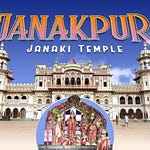Easter is the most sacred and significant festival in Christianity, celebrating the resurrection of Jesus Christ from the dead. It is a deeply symbolic holiday that embodies the Christian beliefs of life triumphing over death, hope over despair, and light over darkness. Rooted in faith, history, and tradition, Easter is not just a religious observance—it is a universal message of renewal, forgiveness, and divine love.
🕊️ Origin and Historical Background
Easter finds its origins in the New Testament of the Bible, where the resurrection of Jesus Christ is described. According to the Gospels, Jesus was crucified, died, and was buried—and on the third day, He rose from the dead. This resurrection is considered the foundation of Christian faith, affirming Jesus as the Son of God and the Savior of humanity.
While the exact term "Easter" is thought to derive from Ēostre, the name of an Anglo-Saxon goddess associated with spring and fertility, early Christians adopted the Jewish festival of Passover (Pesach) as a temporal and symbolic anchor. Jesus' crucifixion and resurrection occurred around the time of Passover, linking the two observances through both timing and theological symbolism—Passover representing liberation from slavery, and Easter symbolizing spiritual liberation through Christ.
📖 Theological Significance
At its core, Easter celebrates the victory of Jesus Christ over sin, suffering, and death. It is the fulfillment of God's promise of salvation and the ultimate demonstration of divine love and mercy.
Key spiritual themes include:
Resurrection: Jesus’ rising from the dead signifies eternal life and hope.
Redemption: Christ’s sacrifice atoned for humanity’s sins.
Renewal: Easter represents the rebirth of the soul and a new beginning.
Triumph: It’s a declaration that light overcomes darkness.
🌿 The Liturgical Season: Lent to Easter
Easter is not celebrated in isolation—it is the culmination of a 40-day period of preparation known as Lent. This spiritual journey includes:
Ash Wednesday: Marks the beginning of Lent, symbolizing repentance.
Lent (40 Days): A time of fasting, prayer, and self-reflection.
Holy Week: The final week of Lent, commemorating key events in Jesus' life:
Palm Sunday: Jesus’ triumphant entry into Jerusalem.
Maundy Thursday: The Last Supper.
Good Friday: Jesus’ crucifixion.
Holy Saturday: The day of mourning and silence before resurrection.
Easter Sunday: The joyful celebration of Jesus rising from the dead.
🧎♂️ Easter Rituals and Traditions
🕯️ Church Services
Easter celebrations typically begin with sunrise services or midnight vigils, where Christians gather in anticipation of the resurrection. These services are marked by:
Scripture readings
Resurrection hymns
Lighting of the Paschal Candle
Communion (Eucharist) in remembrance of Christ’s body and blood
🎨 Easter Eggs
One of the most widely recognized symbols of Easter, the egg, represents new life and rebirth. Ancient cultures viewed eggs as fertility symbols, which were later adopted into Christian tradition. Eggs are:
Dyed and decorated in bright colors
Used in Easter egg hunts and games
Sometimes replaced with chocolate eggs and candies
🐇 Easter Bunny
The Easter Bunny, though not originally religious, is a folklore figure that symbolizes fertility and abundance. Rooted in German traditions, the “Osterhase” would lay colored eggs for children. Today, the Easter Bunny:
Delivers baskets of treats
Is part of seasonal decorations
Is a beloved figure in Easter celebrations, especially among children
🍞 Traditional Foods
Easter feasting celebrates the end of Lent’s fasting. Popular dishes include:
Roast lamb – a symbol of sacrifice
Hot cross buns – marked with a cross, symbolizing the crucifixion
Sweet breads and cakes – such as Paska (Eastern European) or Simnel cake (British)
Spring vegetables and eggs – representing renewal and life
🌍 Global Easter Celebrations
🇬🇧 United Kingdom
Church services, egg rolling contests, and Morris dancing are common.
The monarch distributes Maundy money to the elderly on Maundy Thursday.
🇺🇸 United States
Easter is marked with egg hunts, family brunches, and parades, like the famous New York Easter Parade.
The White House Easter Egg Roll is a major annual event.
🇮🇹 Italy
Holy Week is observed with processions, especially in Rome and Vatican City.
The Pope delivers the “Urbi et Orbi” blessing from St. Peter’s Basilica.
🇬🇷 Greece
Celebrations are vibrant, with midnight fireworks, candles, and cracking red eggs symbolizing Christ’s blood and resurrection.
🇲🇽 Mexico
Passion plays reenact the crucifixion.
Easter combines Catholic rituals with indigenous traditions, creating colorful and emotional ceremonies.
🧠 Symbols of Easter and Their Meanings
Dove (🕊️): The dove represents peace and the Holy Spirit. It is a timeless symbol of purity and divine presence, often seen in religious art related to Easter and baptisms.
Lamb (🐑): The lamb symbolizes Jesus Christ, known as the "Lamb of God." It also stands for purity and the ultimate sacrifice, reminding believers of Christ’s crucifixion and resurrection.
Lily (🌸): The Easter lily is a traditional flower used during the season, symbolizing resurrection, purity, and spiritual awakening. Its white petals reflect the glory and majesty of the risen Christ.
Light (🌞): Light signifies Christ as the light of the world, bringing hope, truth, and new life. Candles and sunrise services on Easter morning represent the light overcoming darkness.
Egg (🥚): Eggs have long been associated with new life, fertility, and resurrection. Just as life emerges from the egg, Easter celebrates the emergence of Jesus from the tomb.
Rabbit (🐰): The Easter Bunny, rooted in folklore, symbolizes fertility and abundance, reflecting the arrival of spring and the renewal of life that aligns with Easter’s themes.
HappyEaster
📿 Easter in Contemporary Times
Though Easter remains deeply religious in nature, it has also evolved into a cultural celebration. From religious observance to family traditions, it holds significance for people of all ages and beliefs.
In a modern context, Easter serves as:
A reminder of hope during dark times
A call to renew our inner selves
An opportunity to reconnect with family and community
Easter is more than a holiday—it is a spiritual journey of transformation, forgiveness, and faith. It challenges us to believe in the unseen, to find strength in sacrifice, and to celebrate life even in the shadow of suffering.
Whether through the sacred rites of the church, the laughter of children hunting for eggs, or the quiet reflection of a spring morning, Easter remains a timeless reminder that every end carries the promise of a new beginning.








